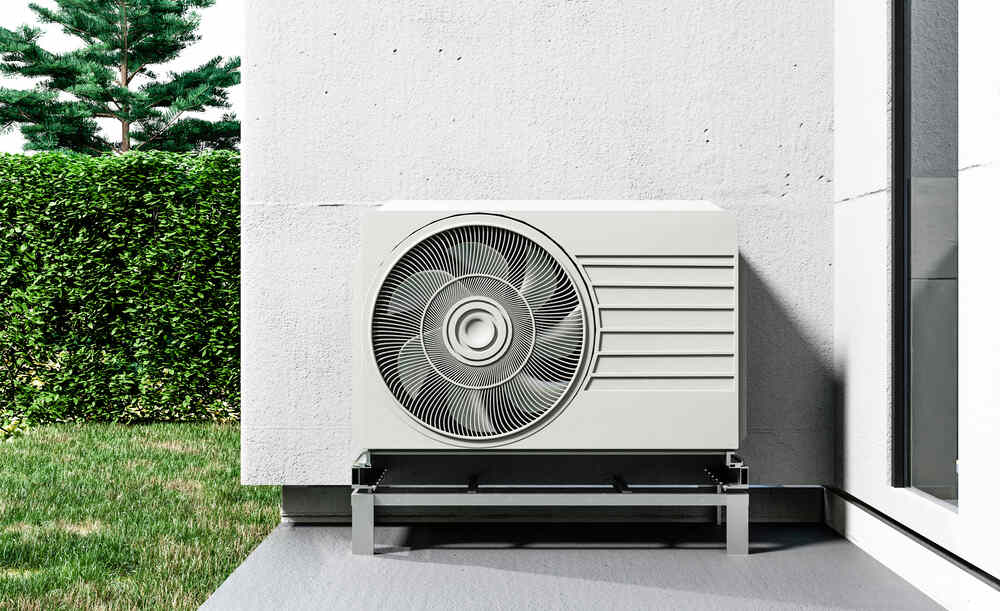The Importance of Scheduling Seasonal HVAC Tune-Ups
While creating a comprehensive HVAC maintenance checklist is crucial, it’s equally important to schedule seasonal tune-ups—typically in the fall and spring. Why? Because it allows you to catch potential issues before the system faces heavy use during extreme weather conditions. For instance, a simple inspection of refrigerant levels and fan performance can prevent system overloads during summer’s peak heat, ensuring consistent comfort and efficiency. Seasonal checkups also extend the lifespan of your unit, helping you avoid costly premature replacements.
In addition, seasonal maintenance boosts energy efficiency. When components like coils, filters, and motors are cleaned or replaced as needed, the system doesn’t have to work as hard, reducing energy consumption by up to 15%. This proactive approach not only saves money but also promotes eco-friendly home operation, which is a key factor in today’s sustainable living efforts. For added convenience, consider signing up for a professional HVAC maintenance plan, which often includes discounts and priority service for emergency repairs.
Frequently Asked Questions
1. Why is an HVAC maintenance checklist important?
An HVAC maintenance checklist is vital for preventing unexpected breakdowns and ensuring your system runs efficiently year-round. By following a checklist, you can catch minor issues, like dirty filters or loose connections, before they lead to major system failures, saving you from costly repairs or replacements. Proper maintenance can also extend the lifespan of your HVAC system by up to 40%, boosting energy efficiency and reducing monthly utility bills.
2. What should be included in an HVAC maintenance checklist?
An HVAC maintenance checklist should cover all key system components, including air filters, coils, thermostats, and electrical connections. Regular tasks include checking refrigerant levels, cleaning condenser coils, and inspecting ductwork for leaks. Additionally, checking blower motor performance and ensuring proper airflow is crucial to maintain optimal system function. A thorough checklist can reduce energy costs by up to 15%, making it both practical and cost-effective.
3. How often should I perform HVAC maintenance?
HVAC maintenance should ideally be performed twice a year—once before the summer and once before the winter. These seasonal tune-ups help ensure your system is ready for peak performance during extreme temperatures. Neglecting biannual maintenance can reduce efficiency by up to 5% per year, leading to higher energy bills and an increased likelihood of unexpected breakdowns during crucial times.

4. Can I perform HVAC maintenance myself?
While some maintenance tasks, like replacing filters and cleaning vents, can be done by homeowners, it’s recommended to hire a professional for more technical tasks. Certified HVAC technicians can inspect electrical connections, test thermostats, and check refrigerant levels more effectively. Professionals also ensure compliance with manufacturer warranties and safety regulations. For more complex systems, DIY maintenance could void your warranty and risk damaging the equipment.
5. What happens if I neglect HVAC maintenance?
Neglecting HVAC maintenance can lead to reduced system efficiency, higher energy costs, and potential system failure. Over time, dirt buildup in the system can reduce airflow, forcing the HVAC to work harder and consume more energy. Lack of maintenance may also lead to health issues, as dirty filters can circulate allergens and pollutants throughout your home. Consistent neglect could shorten your system’s lifespan by 30%.
6. What are the benefits of seasonal HVAC tune-ups?
Seasonal HVAC tune-ups help identify and fix minor issues before they become costly repairs. During a tune-up, technicians inspect refrigerant levels, clean condenser coils, and check thermostat settings for optimal comfort. Regular tune-ups not only increase system efficiency but can also lower your energy bills by 10-15%. This preventative maintenance extends the life of your HVAC system and ensures peak performance during harsh weather conditions.
7. How does HVAC maintenance improve indoor air quality?
HVAC maintenance directly impacts indoor air quality by ensuring that filters, ducts, and vents are clean and functioning properly. Dirty or clogged filters can circulate dust, pollen, and mold, reducing air quality. Regular maintenance ensures clean airflow and reduces the risk of respiratory issues or allergies caused by poor air quality. High-efficiency particulate air (HEPA) filters can further enhance indoor air quality.
8. How much does HVAC maintenance typically cost?
The cost of HVAC maintenance varies based on your location, system type, and maintenance plan. On average, a basic maintenance service can range from $75 to $200. However, seasonal maintenance plans or professional inspections may cost more but provide long-term savings by preventing major repairs. Some HVAC companies offer discounts on maintenance contracts, which can provide significant savings over time.

9. Can regular HVAC maintenance save energy?
Yes, regular HVAC maintenance can significantly reduce energy consumption. Cleaning and replacing filters, checking refrigerant levels, and ensuring all components are functioning properly can reduce the system’s workload. A well-maintained HVAC unit can use 15-20% less energy, lowering your utility bills and contributing to a more eco-friendly home. Energy-efficient systems can even qualify for rebates or tax incentives in some regions.
10. Should I consider a professional HVAC maintenance plan?
Enrolling in a professional HVAC maintenance plan is a smart investment for homeowners. These plans typically offer biannual tune-ups, priority service for repairs, and discounts on parts and labor. By sticking to a professional maintenance schedule, you can ensure your system stays in top shape year-round, helping to prevent unexpected breakdowns and extending the life of your equipment. Some plans also offer emergency service, which can be crucial during peak seasons.
 Valves
Valves



